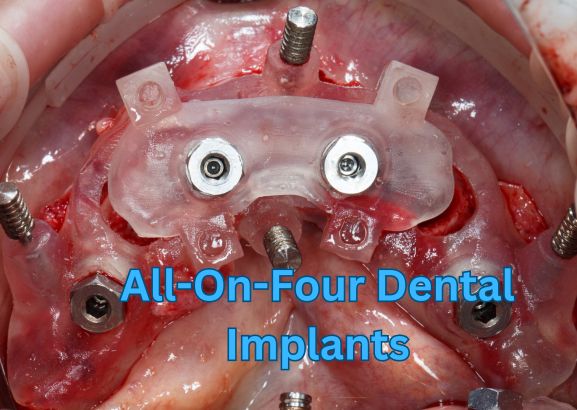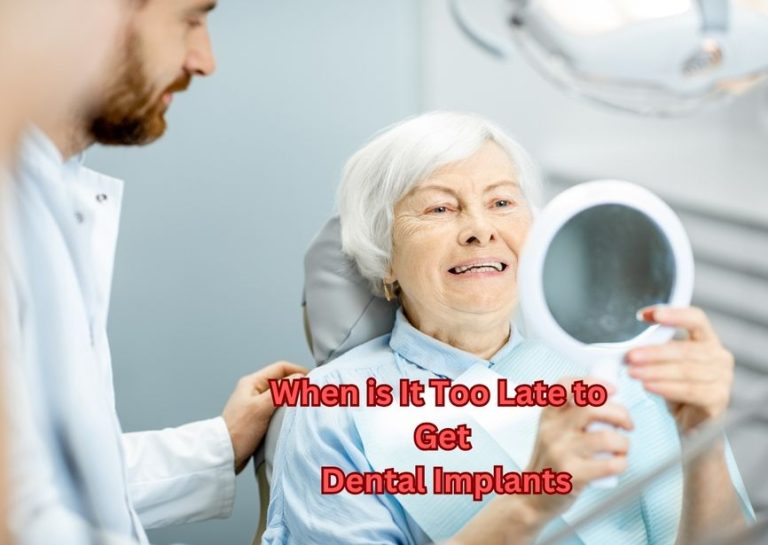Best Treatment for Missing Teeth: Top Smile Solutions
Last Updated on 7 months by DR. ALBIN SIPES
The best treatment for missing teeth is dental implants, which are artificial tooth roots placed into the jawbone to support a replacement tooth or bridge. Dental implants provide a long-term solution for missing teeth, as they look, feel, and function like natural teeth.
Additionally, they help maintain the structure of the jawbone and prevent further bone loss, which can occur when teeth are missing. With dental implants, individuals can regain their confidence and enjoy a complete, healthy smile once again. Whether you have lost a single tooth or multiple teeth, dental implants offer a reliable and durable solution that can enhance your overall oral health.
Introduction To Missing Teeth
Missing teeth can have both psychological and physical health impacts on an individual. The psychological impact can be immense as missing teeth can lead to low self-esteem, lack of confidence, and social anxiety. On the other hand, physical health concerns can arise due to the inability to chew food properly, leading to digestive problems, malnutrition, and even obesity.
Fortunately, there are several treatment options available for missing teeth, including dental implants, bridges, and dentures. Dental implants are a long-lasting and effective solution for replacing missing teeth, while bridges and dentures offer a more affordable and temporary option.
It is important to consult with a qualified dental professional to determine the best treatment option based on individual needs and budget. With the right treatment, individuals can regain their confidence, improve their oral health, and enjoy a better quality of life.
Dental Implants
Dental implants are a popular and effective way to replace missing teeth. The procedure involves surgically placing a titanium post into the jawbone, which acts as a foundation for the replacement tooth. This process provides several advantages, including improved appearance, speech, and comfort. It also promotes better oral health by preventing bone loss and preserving adjacent teeth. Proper care is essential to ensure the long-term success of dental implants. Patients should maintain good oral hygiene and attend regular dental check-ups. Avoiding smoking and following a balanced diet can further contribute to the longevity of dental implants.
Fixed Bridges
Fixed bridges are a great solution for missing teeth as they offer a permanent and natural-looking replacement. They can be customized to match the color and shape of your existing teeth, making them a popular choice for those looking for a long-term solution to their dental problems.
| Types of Fixed Bridges | Maintenance Tips |
|---|---|
| Traditional bridges | Brush teeth twice a day, floss daily, and use an antiseptic mouthwash |
| Cantilever bridges | Avoid hard, sticky, and chewy foods that may damage the bridge |
| Maryland bridges | Visit the dentist regularly for check-ups and professional cleanings |
Removable Partial Dentures
Removable partial dentures offer several benefits and comfort to individuals with missing teeth. These dentures are a popular treatment option as they provide a cost-effective solution for replacing one or more missing teeth. They can improve the appearance of the smile, restore chewing function, and prevent further dental issues caused by gaps in the teeth.
One of the main advantages of removable partial dentures is their ease of care. Maintaining good oral hygiene is essential to ensure the longevity and effectiveness of the dentures. Regular cleaning with a soft-bristle toothbrush and denture cleaner is recommended. Additionally, it is important to handle the dentures with care to avoid any damage or breakage.
Patients who opt for removable partial dentures often experience enhanced comfort compared to other tooth replacement options. These dentures are custom-made to fit the patient’s mouth and are designed to be easily removable for cleaning and maintenance. The ability to remove the dentures can also provide added convenience when eating or speaking.
| Benefits of Removable Partial Dentures: | Comfort of Removable Partial Dentures: |
|---|---|
| Cost-effective | Custom-made for a perfect fit |
| Improves smile appearance | Easily removable for cleaning |
| Restores chewing function | Convenient for eating and speaking |
| Prevents dental issues caused by gaps |
Complete Dentures
When considering treatment for missing teeth, complete dentures are a viable option. Full dentures are recommended when most or all of the natural teeth are missing. Adapting to full dentures may take time as the mouth adjusts to the new appliance. Patients should consider full dentures when seeking a cost-effective solution for missing teeth. Proper maintenance and regular check-ups are essential for ensuring the longevity and effectiveness of complete dentures. It is important to consult with a dentist to determine the best treatment for individual needs.
Resin-bonded Bridge
Resin-bonded bridges are ideal for candidates with a single missing tooth. The treatment offers a balance of longevity and aesthetics. These bridges are minimally invasive and provide a natural-looking solution. With proper care, they can last for many years. However, not suitable for individuals with poor oral hygiene or those who grind their teeth. Regular dental check-ups are essential to ensure the bridge’s durability and effectiveness.
Tooth-supported Fixed Bridge
Tooth-Supported Fixed Bridge is a traditional treatment for missing teeth. It involves placing a bridge using adjacent teeth for support.
The procedure includes preparation of neighboring teeth and placement of a custom bridge. Suitability depends on overall dental health and jawbone condition.
| Tooth-Supported Fixed Bridge | Dental Implants |
| Procedure: Involves using adjacent teeth for support | Procedure: Involves surgically placing implants into the jawbone |
| Suitability: Depends on overall dental health and jawbone condition | Suitability: Requires a healthy jawbone to support the implant |

Flipper: A Temporary Solution
Flipper is a temporary solution for missing teeth, offering a quick and effective way to restore your smile. This removable partial denture provides a cost-effective and comfortable option while you consider a more permanent treatment. With Flipper, you can confidently eat, speak, and smile without any hesitation.
| What is a Flipper? | A Flipper is a removable partial denture used to temporarily replace missing teeth. |
| Pros | – Offers cosmetic improvement – Affordable option – Quick and easy to make |
| Cons | – Not as durable as other options – May feel bulky or uncomfortable – Needs regular maintenance |
Choosing The Right Treatment
Choosing the best treatment for missing teeth can be a daunting task. It’s important to consider various options such as dental implants, bridges, or dentures. Consulting with a dental professional can help determine the right treatment for your specific needs.
| When considering treatments for missing teeth, it is essential to consult a dental professional. |
| Personal factors like overall health and budget should also be taken into account. |
Advancements In Dental Technology
The treatment for missing teeth has advanced significantly due to innovative dental technology. New methods for tooth replacement offer more efficient and long-lasting solutions. Dental implants have become a popular choice for patients seeking a permanent and natural-looking replacement. Additionally, advancements in materials and techniques have improved the success rate of dental implant procedures. The future of tooth replacement looks promising with ongoing research into regenerative therapies and 3D printing technology. These developments are set to revolutionize the field of dental restoration, providing patients with even more effective and personalized treatment options.
Insurance And Affordability
Insurance coverage for missing teeth can be a complex matter, but it’s important to explore your options and understand what is available to you. Navigating coverage requires careful research and understanding of your specific dental plan. Some insurance plans may cover a portion of the cost for treatments such as dental implants, bridges, or dentures, while others may not provide any coverage at all.
If your insurance does not cover the full cost or if you do not have dental insurance, there are alternative payment options to consider. Many dental clinics offer flexible payment plans or financing options that can help make treatment more affordable. Additionally, some dental schools or community clinics may provide discounted or low-cost dental care for those who meet certain criteria.
When considering treatment for missing teeth, it’s important to thoroughly explore your insurance coverage and affordability options. By doing so, you can make an informed decision about the best treatment option for your specific needs.


Frequently Asked Questions
What Is The Best Option For Missing Teeth?
Dental implants are the best option for missing teeth. They provide a natural look and feel, and are durable and long-lasting.
What Is The Cheapest Option To Replace Missing Teeth?
The cheapest option to replace missing teeth is dentures. Dentures are removable prosthetic devices that can replace a few or all missing teeth. They are cost-effective and provide a functional solution for restoring your smile.
How Can I Cover My Missing Teeth?
To cover missing teeth, options include dental implants, bridges, and dentures. These solutions can restore your smile and improve chewing ability. Consult with a dentist to determine the best option for your specific needs and budget.
Which Treatment Plan Is The Best Option For A Missing Tooth?
The best treatment option for a missing tooth depends on the individual’s specific needs. Dental implants are a popular choice as they provide a long-term solution and feel natural. Other options include bridges, which use adjacent teeth for support, or removable dentures.
It’s important to consult with a dentist to determine the most suitable treatment plan.
Conclusion
Finding the best treatment for missing teeth is essential for both aesthetic and functional reasons. From dental implants to bridges and dentures, there are several options available to restore your smile and improve your oral health. Consulting with a qualified dentist and considering factors such as long-term durability and cost can help you make an informed decision.
Remember, a healthy, complete smile not only boosts your confidence but also promotes better overall well-being.


